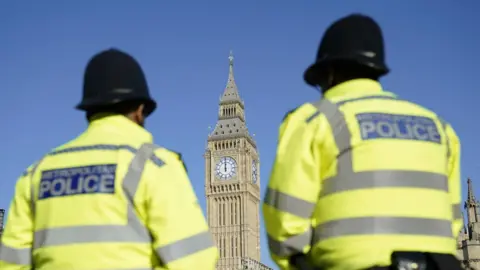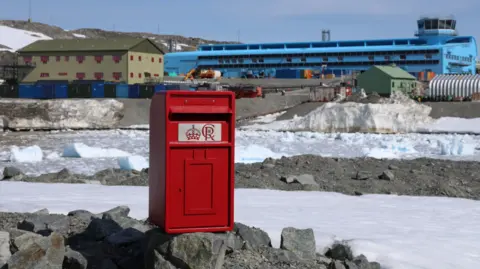德正
2025-12-14T11:08:35.662Z

黎智英创办的《苹果日报》以其鲜明的民主立场而闻名。他自称秉持着“传递信息等同于传递自由”的信念。
(德国之声中文网)香港法院将于周一(12月15日)对前民主派媒体大亨黎智英一案作出宣判。黎智英被控串谋勾结境外势力危害国家安全罪以及煽动罪。
78岁的黎智英于2020年被捕,依据的是中国当局为镇压2019年席卷香港的大规模反政府抗议活动而实施的国安法。
美联社报道指出,该案长达156天的审判受到外国政府和政治观察家的高度关注,被普遍视为对这个前英国殖民地司法独立和新闻自由的一次考验。香港在1997年回归中国后,曾被承诺可以维持50年的西式公民自由。
香港长期以来以其充满活力的新闻媒体和亚洲的抗议文化而闻名。2019年,数十万人参加的持续数月的反政府抗议活动之后,北京随即展开了一场大规模的镇压,扼杀了这座城市的大部分公开异议的发声渠道。
黎智英是首批根据《国家安全法》被起诉的知名人士之一,该法也被用来起诉其他一些主要活动人士和反对派政治人物。北京方面则强调,该法律对维护香港的稳定至关重要。
黎智英创办的《苹果日报》以其鲜明的民主立场而闻名。他自称秉持着“传递信息等同于传递自由”的信念。他的报纸以通俗易懂的方式报道政治和名人,并坚持强烈的民主立场,吸引了大量读者。该报经常呼吁读者参与抗议活动。
黎智英本人也曾多次走上街头,包括参加2019年的抗议活动。
2020年8月,香港警方突袭了苹果日报大楼,并以涉嫌触犯国安法为由逮捕了黎智英。
此后香港特区政府根据《香港国安法》拘捕了多名高层并冻结了《苹果日报》的资金,该报社的资金链断裂,最终于2021年6月24日停止了其26年的业务。
对黎智英最严重的指控是,他与他人“以争取自由和民主为幌子”,邀请美国和其他外国势力对中国实施制裁。
一个关键问题是,黎智英是否在国安法生效后发出过此类呼吁。黎智英并未否认他此前曾呼吁制裁,但坚称在国安法生效后便停止了此类呼吁。
检方辩称,尽管黎智英在法律生效后并未直接要求制裁,但他试图“制造对中国的虚假印象”,为外国对中国实施惩罚制造正当性。同时指出他曾在网络上发表批评香港和中国的评论文章。
黎智英的律师彭耀鸿(Robert Pang)回应称,黎智英的评论相当于饭桌上的“闲谈”,并无实质影响。
黎智英本人也表示,他写作“没有任何敌意或煽动叛乱的意图”。
检方还着重强调了黎智英的海外关系,包括在2019年香港抗议活动高峰期,他与美国前国务卿蓬佩奥和时任副总统彭斯的会面。检方认为,黎智英的海外关系显示其“坚定不移地意图寻求”对中国和香港实施制裁、封锁或其他敌对行动。
六名涉案的《苹果日报》高管于2022年认罪,其中一些人作为控方证人出庭作证。
相关图集:香港告别《苹果日报》
 创办人黎智英
创办人黎智英:《苹果日报》1995年由富商黎智英创办。少年时从广东偷渡至香港的黎智英曾公开支持89民运,并因此受到大陆官方的制裁。他于1990年创办壹传媒有限公司后,旗下出版《壹周刊》等报刊杂志,之后扩展到电视、网络等媒体,并于2003年创设台湾《苹果日报》。黎智英曾在电视广告中咬着苹果说「每日一苹果,没人骗到我!」
 颠覆香港报界
颠覆香港报界:为吸引读者,《苹果日报》采用彩色印刷、新潮排版及口语化大标题,内容上也包罗万有。该报创刊短短几个月内,便彻底颠覆了香港报业的游戏规则。不过该报为了销量不惜哗众取宠,因狗仔队文化丶卖弄色情暴力等,被指过分煽情和娱乐化,并不时陷入道德指责以及司法纠纷。但其调查性报导也得到读者的认可。香港中文大学2019年的传媒公信力调查显示,《苹果日报》在香港收费报纸中排名第三。
 拒绝被“染红”
拒绝被“染红”:该报立场鲜明,有多个时事评论专栏批评中共高层和港府,并经常报导内地维权人士如刘晓波等状况,同时高调支持香港民主运动,多次在社会运动中表态,甚至呼吁读者上街。1997年香港主权移交後,《南华早报》丶《明报》等多家本地报章相继被中资入主丶收购,《苹果日报》被视为香港唯一未被「染红」的主流媒体。
 国安法紧箍咒
国安法紧箍咒:从2014年的雨伞运动到2019年的返修例运动中,《苹果日报》可谓立场鲜明。2020年8月10日,该报创办人黎智英涉《香港国安法》 被捕,《苹果日报》总部被警方搜查。次日该报头条标题为"苹果一定撑落去",印量由两星期前的7万多份涨到55万份,市民们排长队购买。
 台湾停刊
台湾停刊:2021年5月15日,发行18年的《台湾苹果日报》宣布停刊。公告称,“《台湾苹果日报》在新闻战场并没有输”,而是“输在香港局势恶化,造成我们无法再长期支撑亏损”,因此 “忍痛割捨纸本”,集中资源发展《苹果新闻网》。同一天,其母公司香港壹传媒创办人黎智英的财产被冻结,香港保安局的依据是“香港国安法”。
 逮捕高层 冻结资产
逮捕高层 冻结资产:2021年6月17日,警方以涉嫌违反国安法为由第二次搜查《苹果日报》,拘捕5名报社高管。该报被指刊文呼吁外国制裁香港及中国,涉嫌“串谋勾结外国势力危害国家安全”。 当局还冻结《苹果日报》三家关联公司资产共1800万港元,造成报社无法继续运营。
 民众排队购买最后一份报
民众排队购买最后一份报:6月23日,壹传媒宣布,《苹果日报》24日出版最后一期印刷版后,即日停刊,网络版也同时终止运作。最终版的头版标题是“港人雨中痛别,我哋撑苹果”,印刷了创纪录的100万份。香港街头再次出现市民排长队买《苹果》的景象。
黎智英是英国公民,他的案件引起了包括美国和英国在内的外国政府的关注。两国都呼吁释放黎智英。
美国总统特朗普表示,他已就此案向中国提出交涉。英国首相斯塔默也表示,英国政府已将确保黎智英获释列为优先事项。
但北京方面称黎智英是“外国反华势力的代理人和棋子”,并称他是香港骚乱事件的主要策划者。
今年9月9日,黎智英的儿子黎崇恩在接受法新社采访时说:“我很痛心这样说,但如果我父亲死在狱中,他实际上会成为更强大的自由象征,成为为信仰的殉道者。”他还说,其实释放黎智英也符合北京自身的利益。“你也看到过很多异议人士,一旦他们获释,就会失去很多所谓的‘力量’。”
DW中文有Instagram!欢迎搜寻dw.chinese,看更多深入浅出的图文与影音报道。
© 2025年德国之声版权声明:本文所有内容受到著作权法保护,如无德国之声特别授权,不得擅自使用。任何不当行为都将导致追偿,并受到刑事追究。
















 创办人黎智英:《苹果日报》1995年由富商黎智英创办。少年时从广东偷渡至香港的黎智英曾公开支持89民运,并因此受到大陆官方的制裁。他于1990年创办壹传媒有限公司后,旗下出版《壹周刊》等报刊杂志,之后扩展到电视、网络等媒体,并于2003年创设台湾《苹果日报》。黎智英曾在电视广告中咬着苹果说「每日一苹果,没人骗到我!」
创办人黎智英:《苹果日报》1995年由富商黎智英创办。少年时从广东偷渡至香港的黎智英曾公开支持89民运,并因此受到大陆官方的制裁。他于1990年创办壹传媒有限公司后,旗下出版《壹周刊》等报刊杂志,之后扩展到电视、网络等媒体,并于2003年创设台湾《苹果日报》。黎智英曾在电视广告中咬着苹果说「每日一苹果,没人骗到我!」 颠覆香港报界:为吸引读者,《苹果日报》采用彩色印刷、新潮排版及口语化大标题,内容上也包罗万有。该报创刊短短几个月内,便彻底颠覆了香港报业的游戏规则。不过该报为了销量不惜哗众取宠,因狗仔队文化丶卖弄色情暴力等,被指过分煽情和娱乐化,并不时陷入道德指责以及司法纠纷。但其调查性报导也得到读者的认可。香港中文大学2019年的传媒公信力调查显示,《苹果日报》在香港收费报纸中排名第三。
颠覆香港报界:为吸引读者,《苹果日报》采用彩色印刷、新潮排版及口语化大标题,内容上也包罗万有。该报创刊短短几个月内,便彻底颠覆了香港报业的游戏规则。不过该报为了销量不惜哗众取宠,因狗仔队文化丶卖弄色情暴力等,被指过分煽情和娱乐化,并不时陷入道德指责以及司法纠纷。但其调查性报导也得到读者的认可。香港中文大学2019年的传媒公信力调查显示,《苹果日报》在香港收费报纸中排名第三。
 拒绝被“染红”:该报立场鲜明,有多个时事评论专栏批评中共高层和港府,并经常报导内地维权人士如刘晓波等状况,同时高调支持香港民主运动,多次在社会运动中表态,甚至呼吁读者上街。1997年香港主权移交後,《南华早报》丶《明报》等多家本地报章相继被中资入主丶收购,《苹果日报》被视为香港唯一未被「染红」的主流媒体。
拒绝被“染红”:该报立场鲜明,有多个时事评论专栏批评中共高层和港府,并经常报导内地维权人士如刘晓波等状况,同时高调支持香港民主运动,多次在社会运动中表态,甚至呼吁读者上街。1997年香港主权移交後,《南华早报》丶《明报》等多家本地报章相继被中资入主丶收购,《苹果日报》被视为香港唯一未被「染红」的主流媒体。
 国安法紧箍咒:从2014年的雨伞运动到2019年的返修例运动中,《苹果日报》可谓立场鲜明。2020年8月10日,该报创办人黎智英涉《香港国安法》 被捕,《苹果日报》总部被警方搜查。次日该报头条标题为"苹果一定撑落去",印量由两星期前的7万多份涨到55万份,市民们排长队购买。
国安法紧箍咒:从2014年的雨伞运动到2019年的返修例运动中,《苹果日报》可谓立场鲜明。2020年8月10日,该报创办人黎智英涉《香港国安法》 被捕,《苹果日报》总部被警方搜查。次日该报头条标题为"苹果一定撑落去",印量由两星期前的7万多份涨到55万份,市民们排长队购买。 台湾停刊:2021年5月15日,发行18年的《台湾苹果日报》宣布停刊。公告称,“《台湾苹果日报》在新闻战场并没有输”,而是“输在香港局势恶化,造成我们无法再长期支撑亏损”,因此 “忍痛割捨纸本”,集中资源发展《苹果新闻网》。同一天,其母公司香港壹传媒创办人黎智英的财产被冻结,香港保安局的依据是“香港国安法”。
台湾停刊:2021年5月15日,发行18年的《台湾苹果日报》宣布停刊。公告称,“《台湾苹果日报》在新闻战场并没有输”,而是“输在香港局势恶化,造成我们无法再长期支撑亏损”,因此 “忍痛割捨纸本”,集中资源发展《苹果新闻网》。同一天,其母公司香港壹传媒创办人黎智英的财产被冻结,香港保安局的依据是“香港国安法”。
 逮捕高层 冻结资产:2021年6月17日,警方以涉嫌违反国安法为由第二次搜查《苹果日报》,拘捕5名报社高管。该报被指刊文呼吁外国制裁香港及中国,涉嫌“串谋勾结外国势力危害国家安全”。 当局还冻结《苹果日报》三家关联公司资产共1800万港元,造成报社无法继续运营。
逮捕高层 冻结资产:2021年6月17日,警方以涉嫌违反国安法为由第二次搜查《苹果日报》,拘捕5名报社高管。该报被指刊文呼吁外国制裁香港及中国,涉嫌“串谋勾结外国势力危害国家安全”。 当局还冻结《苹果日报》三家关联公司资产共1800万港元,造成报社无法继续运营。 民众排队购买最后一份报:6月23日,壹传媒宣布,《苹果日报》24日出版最后一期印刷版后,即日停刊,网络版也同时终止运作。最终版的头版标题是“港人雨中痛别,我哋撑苹果”,印刷了创纪录的100万份。香港街头再次出现市民排长队买《苹果》的景象。
民众排队购买最后一份报:6月23日,壹传媒宣布,《苹果日报》24日出版最后一期印刷版后,即日停刊,网络版也同时终止运作。最终版的头版标题是“港人雨中痛别,我哋撑苹果”,印刷了创纪录的100万份。香港街头再次出现市民排长队买《苹果》的景象。






